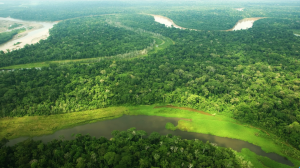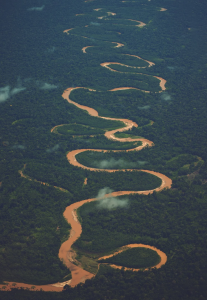Carbon Concessions in Peru’s Permanent Production Forests Open Opportunities for Improved Conservation and Management
A Climate Institute analysis shares opportunities to deploy carbon finance for sustainable forest management and financial advantages in critical ecosystems.
There is an opportunity for economic and climate benefits in the use of existing forestry concessions for the avoidance of emissions and accumulation of carbon stocks.”
WASHINGTON, DISTRICT OF COLUMBIA, USA, April 23, 2024 /EINPresswire.com/ -- A new study led by the Climate Institute finds the use of carbon finance in permanent production forests is financially attractive, environmentally sound, and can help deter illegal logging. The Peru-based study also finds effective use of the carbon market would meet high standards of integrity and ensure additionality, permanence and prevention of leakage. — Walter Vergara, Vice President
The study concludes most current forestry concessions, particularly those under 50,000 hectares, are unlikely to yield financially attractive results, and small concessions would need to aggregate in scale to achieve profitability. Larger concessions (100,000 hectares and above) are financially viable in the export market under current regulatory conditions and promote efficient and sustainable resource utilization.
The report also concludes that avoiding logging in approved forestry concessions to reduce carbon emissions could generate high-quality, credible carbon assets, characterized by robust additionality and permanence. Therefore, they could benefit from premium prices in the carbon market and yield adequate financial returns while assisting in reducing illegal timber trade.
“There is an opportunity for economic and climate benefits in the use of existing forestry concessions for the avoidance of emissions and accumulation of carbon stocks,” said Walter Vergara, author of the study and Vice President at the Climate Institute. Key findings of the study were released today at the Climate Institute office in Washington, D.C.
Scaling up the use of carbon concessions could also displace timber in the domestic and export markets. Investing in plantations of precious hardwoods in degraded areas could meet these requirements over time. Plantations of native species would generate high economic activity, employ a high-quality labor force, and may result in valuable carbon removals. Developing native species plantations would drive R&D investment in forestry, alleviate pressure on primary forests, and advance the nation's forest restoration objectives.
“This study provides additional helpful elements to continue the optimization of the concession regime in permanent production forests in Peru and identifies opportunities for better use of forest resources,” stated Jessica Moscoso, Director of the Division of Promotion and Competitiveness at the National Forestry and Wildlife Service (SERFOR) in Peru.
“We are proud to continue partnerships between the Climate Institute and governments and parties in Latin America on one of the biggest challenges facing the region,” remarked Philip Johnson, Chairman of the Board of Directors at the Climate Institute. “This report showcases the tremendous opportunity we have to conserve the world’s last remaining forests and ecosystems through carbon markets. We look forward to helping lead implementation of this work.”
The Carbon Concessions in Peru report evaluates how the wealth represented by forest resources could maximize long-term benefits for the economy, society and the environment. The results also provide incentives for other nations in Latin America and around the world to examine the multi-dimensional opportunities of carbon concessions. The Climate Institute plans to expand partnerships in the region to identify and implement climate solutions, including a continuation of research and analysis on this promising market.
Walter Vergara
Climate Institute
wvergara@climate.org
Legal Disclaimer:
EIN Presswire provides this news content "as is" without warranty of any kind. We do not accept any responsibility or liability for the accuracy, content, images, videos, licenses, completeness, legality, or reliability of the information contained in this article. If you have any complaints or copyright issues related to this article, kindly contact the author above.



